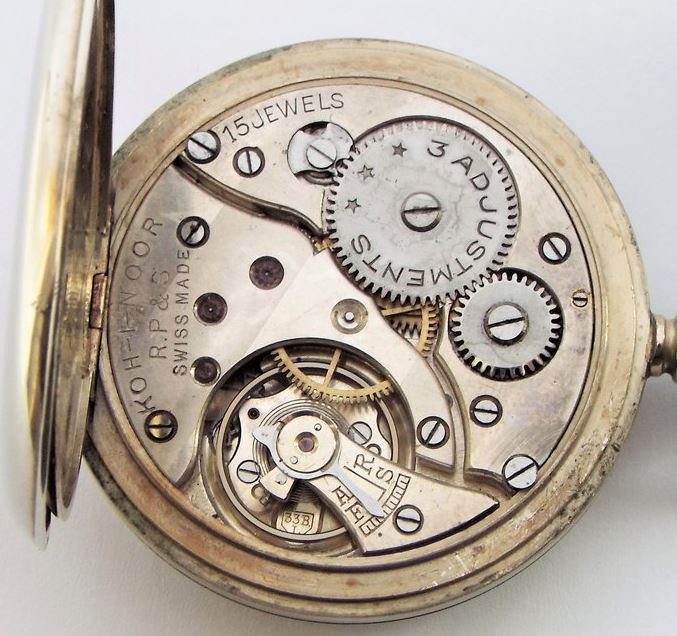Last updated on May 31, 2024
I collect antique watches because I enjoy them, I certainly don’t buy them with the intention of reselling and making a profit. However, for those people who buy them as an investment, there are significant tax benefits. Since the early 1990s, the value of antique and vintage watches from well-known Swiss made brands has risen significantly. The surge in value has been so remarkable that it has generated media attention, with various publications, from The Sunday Times and the Telegraph, through to Country Life, featuring articles on purchasing antique timepieces as investments. The classic wristwatch phenomenon has genuinely taken off, attracting considerable interest from individuals looking to invest in these items. There are definitely tax benefits for antique watch collectors in the UK, as these items currently don’t attract capital gains tax when sold.
Wasting assets
One of the significant factors that have contributed to the growing interest in investing in antique or vintage watches is that HMRC in the UK considers them “wasting assets”. Consequently, they are exempt from capital gains tax when sold, as long as they have not been used for business purposes. This policy has undoubtedly been a significant catalyst for the enthusiasm surrounding investment in antique watches, as it offers a tax-free avenue for investors to profit from their investments in these valuable items.
It seems strange that antique watches, which are known for their durability, have been classified as “wasting assets.” As we know, these watches can last for decades, if not centuries. However, HMRC has classified them as “wasting assets” due to their mechanical nature. Machinery, in general, is believed to lose its value over time and becomes worthless by the time it reaches the fifty-year mark. As a result, items in this category are considered “wasting assets,” and their sale is exempt from capital gains tax. HMRC has a dedicated webpage in its Capital Gains Manual for clocks and watches: CG76904 – Wasting assets: clocks and watches.
For investors or collectors, this particular loophole is a welcome benefit from HMRC. When cash is kept in a bank account, the interest earned is subject to taxation. Similarly, if an investor buys and sells a secondary property, they will be liable to pay taxes on any gains realised. However, if the same funds are used to purchase a collection of antique or vintage watches and are eventually sold at a profit, no capital gains tax will be owed to HMRC. This tax exemption makes investing in antique or vintage watches an attractive option for those seeking to profit from their investments.
Collectables
The exemption for capital gains tax on “wasting assets” is not unique to antique pocket watches. Other items such as antique guns, classic cars and motorcycles, antique scientific instruments, and mechanical toys also qualify for this exemption. This tax policy has resulted in a surge in value for various collectables. This includes vintage train sets, antique shotguns, early long-case clocks, old Ferrari sports cars, and Triumph motorcycles. Auction houses like Sotheby’s, Christie’s, and Bonhams have all held specialist sales centred around these commodities. It is rare to find luxury items that are both enjoyable and financially rewarding. However, with these items, investors can make a profit without incurring any tax liability.
In conversations with other collectors over the years, I have noted that many are investing in antique watches due to their potential as tax-free investments. As an antique watch collector, I am not a qualified accountant. However, we believe it is beneficial to mention the concept of wasting assets on our website to inform those who may not be aware of its existence. Whilst confident that the information provided is accurate at the time of writing, it is presented as background information only and no responsibility can be taken for its application. Anyone considering investing in wasting assets should seek advice from their accountant or a professional financial advisor to understand the tax advantages specific to their personal situation. If you are thinking of selling a watch, always consider the tax benefits for antique watch collectors in the UK.


This is one of the reasons that collecting vintage and antique watches has become so popular. If you buy a modern Swiss watch it loses value as soon as you strap it on your wrist, unless it is high-end like Rolex or Patek Phillipe. Vintage and antique watches already took that hit decades ago, the price you pay now is preserved and typically the price increases year on year. I can buy a vintage watch, wear it for a year or two and sell it at a small premium to fund the purchase on my next timepiece. If you are building a decent collection of antique timepieces it should appreciate over time and there is no capital gains tax. What more can you ask for from a hobby? Thanks, Tom.
Hi Tom, you make some good points. I have only been collecting antique pocket watches and trench watches, but they are becoming so hard to find these days. I am thinking of adding vintage Swiss made watches to my collection, because they are so much more available and very reasonably priced. If you are looking at the tax benefits, these watches must be 50 or more years old. Anything pre-1973 falls into this bracket. However, I think HMRC might start asking questions if there was a consistent and high volume turnover. A one-off sale of a collection or the occasional sale of a vintage watch you have owned for years would probably be ok for tax purposes. If there is any doubt, seek financial advice. Thanks for taking the time to comment, Jason